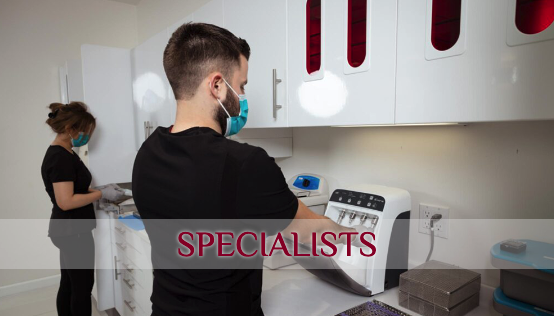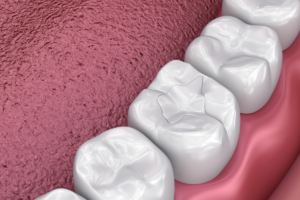Do your permanent teeth have a commitment to accompany you for a lifetime and do they let you down? Most of you may have taken your natural teeth for granted in spite of how valuable they are. That may be the reason! Your natural teeth offer much more than a kind smile, though you may not tend to put much stock in them until your oral health starts deteriorating and your teeth begin complaining.
Certain conditions may not allow your permanent teeth to fulfill their promise of staying with you. Chances are in your favor if you take care of your natural teeth as they deserve, and they beat these circumstances. However, even if you take excellent care of your teeth, there is always the possibility that, at some point, tooth extraction might be your last choice to save the other teeth.
Why You Might Need Your Teeth Extracted
While dentists generally go to great lengths to save a tooth, there are conditions where the impacts of decay, trauma, injury, disease, and especially age happen to be stronger, and a tooth extraction becomes indispensable since leaving the tooth as is can pose a risk to the health of your other teeth.
The most common instance that may warrant a tooth extraction is complications with your wisdom teeth, though several other circumstances may convince your dentist to discuss tooth extraction with you.
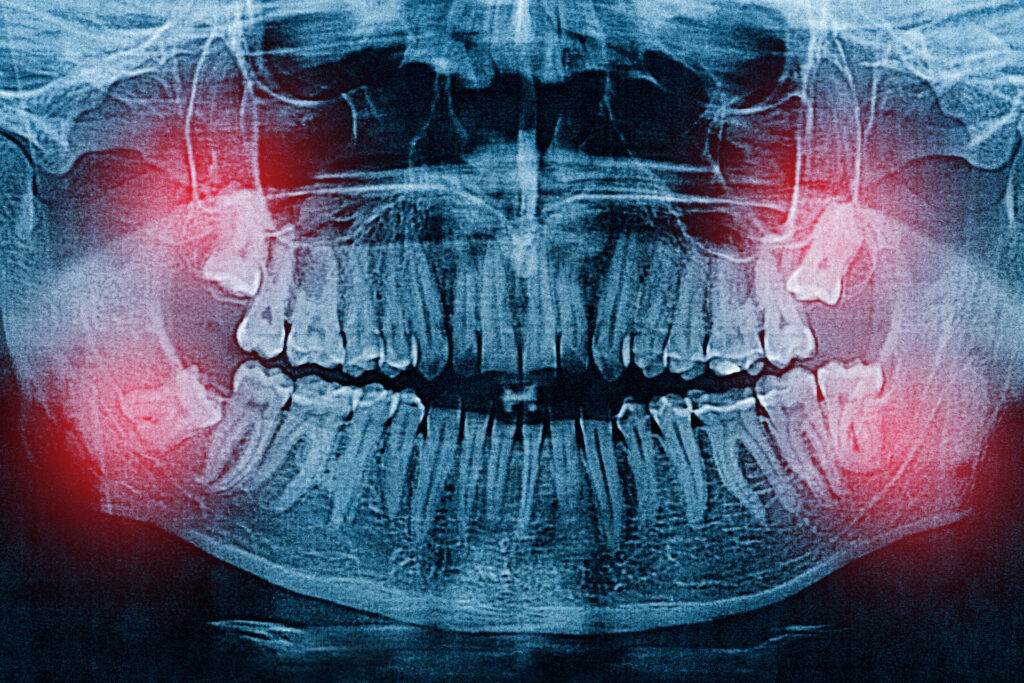
Extracting A Wisdom Tooth
Your dental condition goes through many evolutions in your lifetime. One major dental milestone that you generally reach in your late teens and early twenties is the appearance of your third molars as your last teeth to grow. They are also known as wisdom teeth, historically since they emerge in a more mature you.
When coming through correctly, your healthy wisdom teeth can allow you to chew. Feeling a little discomfort once your wisdom teeth appear is natural, but other issues should be taken seriously. In some cases, wisdom teeth need to be pulled to rescue the rest of the teeth.
Reasons for wisdom tooth extractions
Sometimes, there is not enough space in the jaw for the wisdom teeth to come through properly. As a result, they may erupt in the wrong position or never fully break through the gums. Once your wisdom teeth are trapped in your jaw or under your gums, they may cause severe problems:
- A wisdom tooth that is not in the proper position can make the ideal place for cavity-causing bacteria to grow.
- A wisdom tooth that has not grown appropriately can make cleaning your teeth a challenging task.
- A wisdom tooth that has partially surfaced can allow bacteria to enter the gums, making them vulnerable to infection, which can, in turn, lead to pain, swelling, and stiffness in your jaw.
- A wisdom tooth that does not have room to come through can damage the adjacent teeth.
- A wisdom tooth that is impacted can form a cyst that damages the roots of the adjacent teeth or the bone that supports them.
Wisdom teeth may need to be removed when there is proof of impacting changes in the mouth, including pain, infection, tumors, cysts, or gum diseases.
The removal of wisdom teeth may also be discussed as a part of other dental care treatments.
Extracting a Root-Canaled Tooth
Every single tooth consists of a crown and roots. The crown is the section above the gum, and the roots are below it, attaching the tooth to the jawbone. The root canal treatment intends to help treat infection of the pulp, which is the hollow section of a tooth that contains nerve tissues, blood vessels, and other cells. The pulp nourishes the tooth and provides moisture to the surrounding tissues.
While root canal treatments are supposed to yield an excellent long-term outcome, the teeth themselves are often subject to certain irreversible conditions and complications that typically cannot be controlled and will ultimately cause the treatment to fail, in which case the root-canaled tooth requires extraction. Reasons that may lead to a root canal failure vary.
- Sometimes, the canals in a tooth are difficult to locate, and there are some undetected canals that are still infected.
- The cleaning process is not entirely performed on some occasions, as a result of which the infection will not be entirely removed.
- Improper restoration is another complication which may arise due to a delay in restoring a tooth after root canal treatment.
- If your restoration gets damaged for any reason, the tooth can get infected again.
- The failure may also happen because of a cracked tooth root. The root may get damaged during the canal treatment.
The procedure of extracting teeth with an existing root canal is complicated. During the extraction, the tooth and its roots become very frangible, and cautious surgical methods are required to remove the teeth gently while preserving the surrounding bone necessary for healing and possible future implant placement.
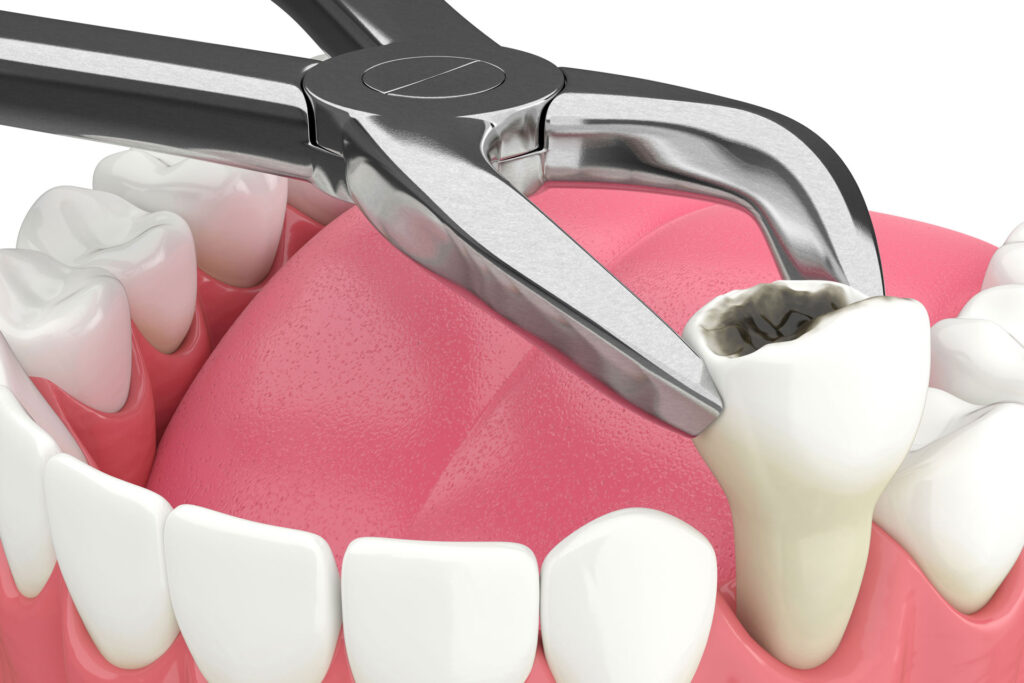
Extracting a Tooth Due To Severe Decay, Damage, or Trauma
A tooth that is severely decayed should no longer remain in the mouth. An infection may develop as a result of prolonging its removal, which can cause general health issues. Once a tooth reaches this point, removing it may be your last resort. If the majority of your teeth in the upper or lower dental arch are damaged to the extent that they are no longer restorable, all your defective teeth on the arch are usually recommended to be extracted and replaced with the help of implants.
Teeth are usually some of the first losses in accidents. Misfortunes may cause a tooth to become too damaged to save. If your damaged tooth cannot be fixed with the help of a crown or dental filling, and becomes non-restorable due to dental trauma, you will have to consider tooth extraction. Otherwise, it could become severely infected.
Extracting a Tooth Due To Impaction
An impacted tooth develops when the growth of another tooth pushes directly against it, and it will get stuck in gum tissue or bone. The area may be overcrowded, leaving no room for the teeth to emerge, which can result in tooth impaction. The impacted tooth is exposed to infection, causing red, swollen, tender, or bleeding gums. In these cases, the subject tooth should be extracted as soon as possible to prevent further damage to the other teeth.
Extracting a Tooth Due To Gum Disease
When the bone or gum around the tooth deteriorates too much, removing the tooth may be recommended in favor of a dental bridge or dental crown to preserve the surrounding teeth.
Extracting a Tooth Due To Overcrowding
Overcrowding of teeth prevents you from enjoying well-aligned smiles. Pulling the problematic teeth can open up some space for the rest of the teeth to spread out, maintaining your straight smile.
Extracting a Tooth Due To Infection
Pulps are soft tissues inside your teeth, beneath the white enamel and a hard layer called dentin. They contain blood vessels, nerves, and connective tissues and help with the growth of your tooth during its development stages. Once a tooth is fully developed, it can survive without the pulp. If tooth decay extends to the pulp, bacteria can leak into it, resulting in infection. Though the condition can be controlled in many cases, it becomes severe sometimes, and the tooth needs to be removed to prevent the spread of the infection. Otherwise, your oral health could be compromised, and you may face serious conditions such as bone loss, teeth shifting, and changes in your bite.
Extracting a Tooth in the Orthodontic Process
The goal of orthodontics is to properly align the teeth, enhance the appearance of smiles, provide a functional and comfortable bite, and improve functions such as chewing, swallowing, sleep, breathing, and speech. However, this goal might be deemed unattainable once teeth do not break through the gum, unless one or more of the sound teeth get extracted in order to create the necessary space for the rest of the teeth to move.
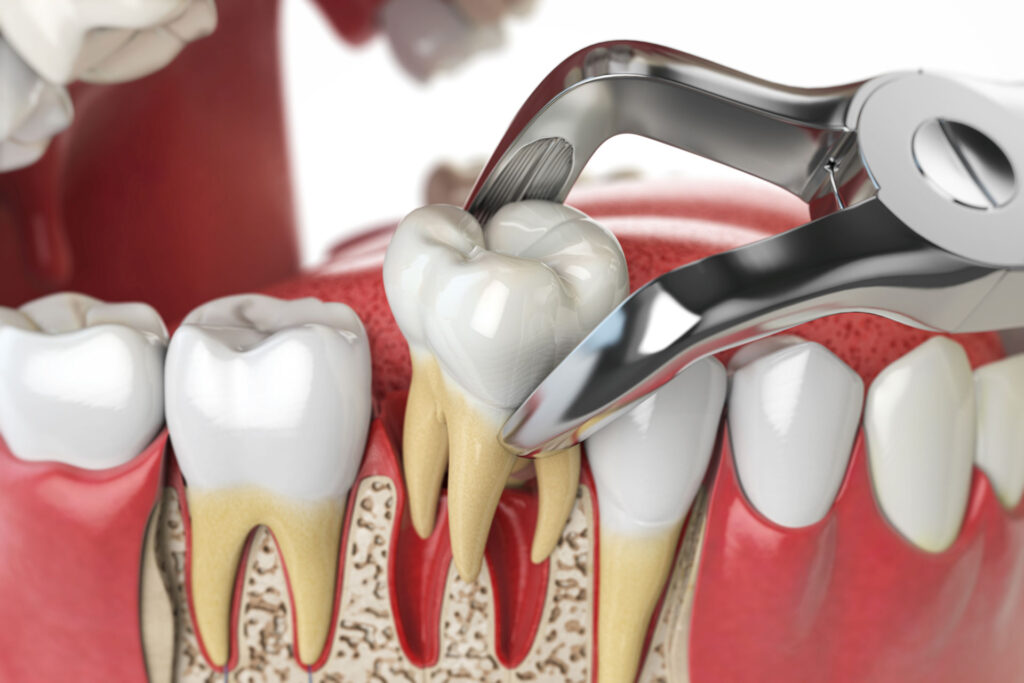
How a Tooth Extraction Treatment Is Performed
Advanced dentistry has made it possible for you to keep the fear of going through painful treatments at bay; thanks to modern medications and anesthetics, many dental treatments are now relatively quick and painless, and tooth extraction is not an exception.
When the affected tooth is visible, the process is simple, but sometimes, a complicated surgical procedure is required, during which you will get a small incision in the gum or a tooth sectioning, where your tooth is cut into pieces to facilitate its removal.
What Common Protocols Are Expected Prior To the Procedure
Scheduled check-ups are necessary prior to the procedure, in order to discuss your treatment plan.
Any health conditions, including a congenital heart defect, diabetes, liver disease, thyroid disease, or hypertension, should be disclosed to prevent complications.
You should provide your doctor with your full medical history, detailed to any medications or supplements you are currently taking.
Avoid eating or drinking 6-8 hours prior, and refrain from smoking.
What Happens on the Day of the Tooth Extraction surgery
Whether you will be having a simple extraction or a surgical procedure, an anesthetic will be used, and you will be numbed up for the procedure. The dentist will remove the tooth as planned prior to surgery, and once the tooth extraction is complete, the empty tooth socket will be cleaned, and sometimes a few stitches will be placed to help the extraction site recover. Finally, the bleeding will be controlled.
When the extraction process is simple, a local anesthetic will be applied, and you will feel almost no pain during the procedure. In case of a surgical tooth extraction, a combination of local and IV anesthesia will be used to decrease any possible inconvenience.
Your specific oral health condition is what determines whether the extraction will be simple, or if it will require surgical intervention.
What Risks a Tooth Extraction Process Can Pose?
The procedure of tooth extraction is generally safe and effective, since it has been widely practiced. No serious risks have been reported. Only mild complications have been found in the patients.
You will notice blood clot forming in the tooth socket. You should contact your doctor in case of bleeding that lasts more than 12 hours, fever and chills, nausea or vomiting, cough, chest pain and shortness of breath, and swelling or redness.
What After-Care Instructions Are Important To Follow
You will experience mild discomfort after the extraction of a tooth, which is usually subdued with the use of an anti-inflammatory drug, and you can expect recovery to take anywhere from a week (after a simple procedure) to several weeks (after a surgical extraction).
In order to achieve better results and reduce discomfort, you should follow some post-care tips:
- Bite down on the gauze pad placed over the extraction site to reduce bleeding;
- Place a cold compress or an ice pack on your cheek for 10 minutes at a time;
- Avoid physical exertion for the first 24 hours after the procedure;
- Make sure to keep your mouth clean; and
- Take the prescribed medication.
Though keeping your natural teeth is always prioritized, tooth extraction cannot be put off once recommended, especially when your doctor believes it to be the only way to prevent further tooth decay or bone loss. The process sounds discouraging, but it’s always better to stop procrastinating, as any delay might result in the condition being worsened.
Regardless of the reason, the removal of a natural tooth can lead to concerns about your dental health. That is when cosmetic dentistry steps in to restore your extracted teeth with the help of its modern technologies and the priority to refresh your natural teeth. To prevent any possible complications, restorative dentistry will also be there to offer alternatives to extractions.
Your oral health is your overall health, and we do care about it. So, if your tooth decided to hurt today, the only thing to do is to contact our team on Aria Dental to help you find the best treatment options. We offer restorative solutions for your loss. Tooth for tooth.









